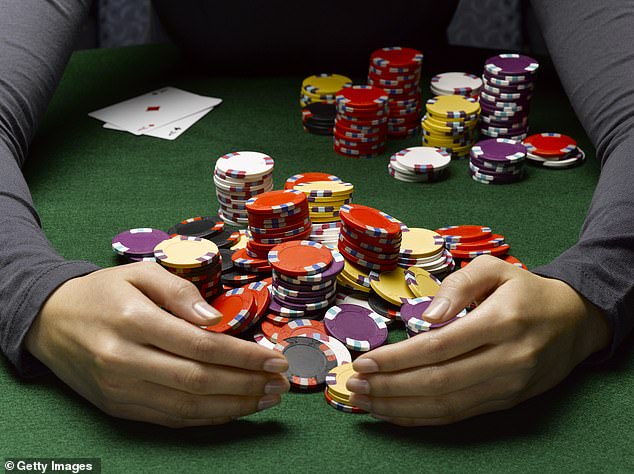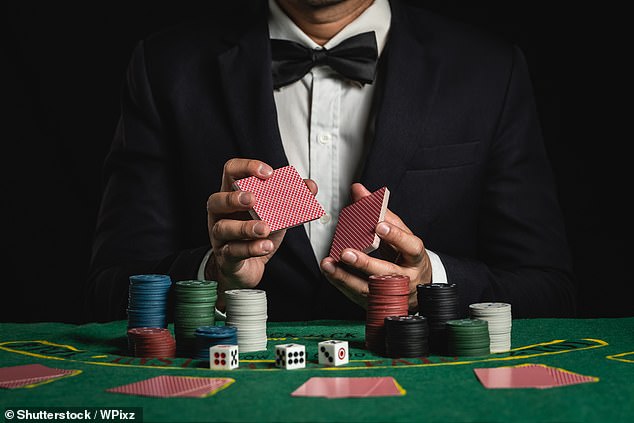Why bluffers don’t win at poker… or in life
The truth detective
by Alex O’Brien (Souvenir Press £16.99, 288pp)
This is a book about poker that isn’t really about poker. Alex O’Brien is a science writer and ‘semi-professional’ poker player whose fundamental thesis here is that learning and playing poker can help you in life and make us all better, more well-rounded people, even if they are a little poorer.
I should probably add that I gave up my fortnightly poker game with friends about 25 years ago when I lost £200 in one evening, which was a huge amount then and not a trivial amount now.
I think O’Brien is a proponent of playing poker correctly, which is to say, well, and not like the small-brained bear I so clearly was. She subtitles her book ‘A Poker Player’s Guide To A Complex World’, and I’d say it becomes less complex if you stop playing poker and read books about it instead. But that could be just me.
Alex O’Brien’s basic tenet is that learning and playing poker can help you in life and make us all better, more complete people.
Non-players (and I include myself here) think poker is all about bluffing, and O’Brien put that idea to the table early on. Bluff occasionally, she says, when you feel like you have a handle on your fellow players, but not randomly, because that way you will lose most, if not all, of your doubloons.
No, poker isn’t about lying, it’s about the truth and your ability to identify the truths of your fellow players. Is that a straight flush Matthew is holding, or two sevens? You saw Terence’s queen – is there another in there? Above all, play slowly and think slowly, she says.
Think about your different courses of action before you act. Most of the best players, she points out, fold most of their hands. They prefer to wait for something good to come along.
Poker is not a game of luck, it is a game of skill, a game of intellect rather than emotion. Think rather than feel. A good lesson for life, I’d say.
O’Brien speaks at length about the increasing spread of conspiracy theories and “fake news,” where opinions trump facts and feelings erase all thoughts.
“When we claim ownership of the truth without seeking evidence to verify it, we fail to interact on a meaningful, thoughtful basis.”
Her solution is critical thinking, which used to be taught in schools and universities but has long gone out of fashion.
Carl Sagan, the eminent astronomer, taught it at Cornell. “Sagan’s lifelong goal was to popularize the scientific method, as he saw how the growing fallacies of superstitious thinking and blind faith were sweeping society and threatening to dominate it.”

There are more than 100 million poker players around the world and less than 5 percent are women
O’Brien points out that scientists who put a new theory to the test are not looking for things that confirm that theory, but for flaws that undermine it. We should do the same, in everyday life. As Galileo once said, “All truths are easy to understand once discovered; it’s about discovering them.’
Her love for poker permeates the book. It is ‘an incredibly cerebral and strategic game’. Furthermore, there are more than 100 million poker players worldwide, and less than 5 percent are women.
‘The cards are blind. Like in so many other areas of life, age-old misconceptions about women remain strong here too. . . Fighting for gender equality while having fun has enormous appeal.”
It’s not the easiest book to read – there are plenty of tricky concepts to get over, and O’Brien’s prose style can be cloying at times – but it’s surprisingly rewarding and often very revealing about human nature.
For example, she says we shouldn’t worry about having a ‘poker face’: it’s our voice and body language that usually give us away, so we need to maintain control of our hands, feet and vocal chords as well as our eyes. and ears. She tells the glorious story of a player who asked his opponent before a match how her tea was.

Poker is not a game of luck, it is a game of skill, a game of intellect rather than emotion, according to science writer and ‘semi-professional’ poker player O’Brien
“Oh fantastic!” she replied, “This is really good tea.” About an hour later she went all in with her chips and he asked her, “Betty, how do you like your hand?” “Really good hand, Slim!” she shot back, but he noticed a difference in tone and demeanor compared to when he’d asked her about her tea, deduced she was lying, called her with a couple of fivers, and won $100,000. with my opponents is my secret weapon,” he said later.
Reading this book didn’t give me any desire to revive my poker game, but it did help me understand the world, and especially the idiocies and bad behavior of others, a lot better.
It is highly recommended.
